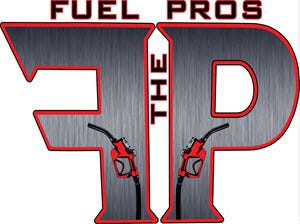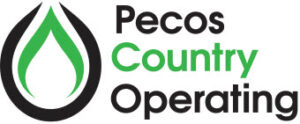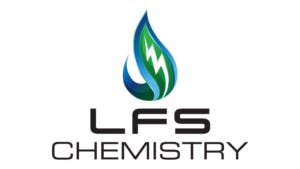Excited to talk to Karr Ingham, Executive VP / Petroleum Economist @ Texas Alliance of Energy Producers, on the latest episode of the Crude Truth. Karr has been in the oil & gas business since the early 1980s and is a wealth of knowledge when it comes to the macroeconomic trends that affect O&G. We discuss what TAEP does, the Texas Petro Index, why small producers are getting squeezed out, the 2024 presidential election and so much more! We need more folks like Karr Ingham to keep speaking the positive truth about our business and that’s THE CRUDE TRUTH
Links:
Texas Alliance of Energy Producers: https://texasalliance.org/staff/karr-ingham/
Karr Ingham LinkedIn: https://www.linkedin.com/in/karr-ingham-9b62333a/
Highlights of the Podcast
04:02 – Texas Alliance of Energy producers
07:37 – Presidential election
09:21 – The gas production data
12:10 – The US domestic oil and gas industry
15:17 – Harmful to smaller operators
17:09 – Small producers
19:00 – Crude oil prices
21:30 – U.S. domestic crude oil production
24:28 – OPEC
28:03 – The Texas Petro Index
34:03 – The production
35:27 – Boom and bust
40:47 – A barrel in 2023
44:43 – That keeps America going
Please reach out to Karr Ingham on LinkedIn

Check out StatusJet HERE
THE CRUDE TRUTH Ep. 81 Karr Ingham Owner, Economist at InghamEcon, LLC
Video Transcription edited for grammar. We disavow any errors unless they make us look better or smarter.
Rey Treviño [00:00:00] As 2024 continues to roll on. What is the state of the alliance of the Oil and Gas Industry? We talked to an expert on this episode of The Crude Truth.
Narrator [00:00:10] In 1901 at Spindletop Hill, near Beaumont. The future of Texas changed dramatically. As, like a fountain of fortune, thousands of barrels of oil burst from the earth towards the sky. Soon, Detroit would be cranking out Model TS by the millions and America was on the move. Thanks to the black gold being produced in Texas. Now, more than a century later, the vehicles are different, but nothing else has truly changed. Sure, there may be many other alternative energy sources like wind and solar and electric. But let’s be honest. America depends on oil and entrepreneurs. And if the USA is truly going to be independent, it has to know the crude truth.
Narrator [00:00:53] This episode is brought to you by LFS chemistry. We are committed to being good stewards of the environment. We are providing the tools so you can be too. Nape Expo where deals happen. Air compressor solutions. When everything is on the line, Air Compressor Solutions is the dependable choice to keep commercial business powered up. Sandstone Group, Exec Crue. Elevate your network. Elevate your knowledge. Texas Star Alliance, Pecos country operating. Fueling our future.
Rey Treviño [00:01:28] Hello there and whatever time of the day it is. Thank you, as always, for tuning in for another episode of The Crude truth. As we’re rolling into this year, we are just continuing. It’s an election year. The oil and gas industry at this time is producing more oil than we ever have. And the state of Texas, more importantly, is a one that has America physically, geographically and economically on its shoulders. So today, I brought on a guest that really needs no introduction, but I’m going to just team up because I’m just so excited. Our guest today is somebody that, is known throughout the oil and gas industry from Austin to Washington, DC. He is the chief economist. He sees things before we can see him, guys. He is with the Texas Alliance of Energy Producers. My guest today is Karr Ingham, Karr how are you?
Karr Ingham [00:02:21] How are you? I’m good. Rey, how are you?
Rey Treviño [00:02:23] Doing real well. And it’s Ingham.
Karr Ingham [00:02:26] Ingham. No R
Rey Treviño [00:02:27] No R in there. No R in there? And, thank you so much for coming in.
Karr Ingham [00:02:30] Thanks for having me.
Rey Treviño [00:02:31] And I tell you what, we’ve already been, you know, our producer had to cut us off because we were already talking before we even started, recording this episode.
Karr Ingham [00:02:40] We could do this for the rest of the day.
Rey Treviño [00:02:41] I think so. I mean, you walked in and you were like, well, how much time you got? I was like, well, how much time you got? And then our producer shout out to lime over there he goes. We got to start going to talk. So I was like, let me get my show notes and, and let’s, you know, let’s dive in. Thank you for coming all the way. I’m going to say coming down. I know you were in Houston, but you had to come from Amarillo, Amarillo, and and welcome back to the studio. And, funny backstory. You actually, long time ago, when you had a head of hair, you were actually doing studio Network.
Karr Ingham [00:03:15] Which was a long time ago. I was up in the North Country in Amarillo. Was. Well, first I was a radio guy for three years. So who cares about the who what? You look like. You know, I did. I did a year or two of television. This was farm and ranch work, which, I mean, the farm broadcasting business is so big in farm parts of the world. Yeah. And, so, yeah, I did 4 or 5 years as a as a, as a radio television guy up in Amarillo, Texas.
Rey Treviño [00:03:41] Well, you know, as I listen, you definitely have the voice, radio wire. How does it sound? Does he sound like. Yeah, yeah. One’s given us a thumbs up over there that you got the voice for it. So, I don’t know, maybe people are going to. You know, maybe you need to do this more often, and, because I don’t see you.
Karr Ingham [00:03:56] I’ll do it any times you want to do it.
Rey Treviño [00:03:58] Well, come on. And, I mean, you know, we need to talk. Texas Alliance of Energy producers. You are the chief economist over there. And, you know, I’ve had on, Jason last year and, you know, you guys are. The word important doesn’t even begin to describe how important you guys are to the small operators like Pecos Country Operating and all the other ones here in the great state of Texas. Y’all represent the over 50% of the operators of Texas that produce over 50% of the production here in the state. So what you guys are doing is so, so important. So for any of our listeners out there, well, you know. Listen to that episode and then tuned in because we’re excited to see you there. Jason, you know, I’m sorry. And I give Jason a hard time. Yeah. That too. Yes.
Karr Ingham [00:04:48] I’ll call that part back for.
Rey Treviño [00:04:49] Oh, we will, we will we’ll have to give him a hard time. But, you know, can you tell us a little bit about the Alliance?
Karr Ingham [00:04:55] Yeah. You bet. The Texas Alliance of Energy Producers as a statewide upstream or exploration and production, industry trade group. And so we represent people who are in the business of producing crude oil and natural gas, in Texas. And along with that, the service companies and the drilling company. So what I would call kind of the upstream sector of oil and gas activity, that’s what we do at the Alliance. There are other groups that represent upstream, midstream, downstream. We are just upstream focus people who pull crude oil and natural gas out of the ground and sell it. And as you mentioned, I mean, our focus, we’ve got all sizes and profiles of companies as members, and we are thrilled to have all of them. And they wouldn’t be members of ours if they didn’t think we brought value to them somehow, either in our work in Austin, at the legislature, and at the Commission. And that’s most of it, especially for the larger companies. But DC as well, because we’re a player there, unlike, most of the other, all, I guess, trade groups in Texas, which is fine. I mean, they’re focused in Texas, but you know as well as I do, you can get clobbered by DC pretty quickly, and they are doing their level best to do away with the oil and gas industry, period, I think. But who who’s who’s that who’s who’s first to go. The smaller independents, the smaller operators. And so it’s this group for whom we stand in the gap and proud to do it. Pleased to do it, I like to say. You. You as well as me. Everybody out there, you know, if they said okay. Name some oil and gas companies that you know, I mean, somebody who has nothing to do with oil and gas could. Rip off the list of 5 or 10 companies. I like to say we represent great, long tenured, sophisticated, fantastic oil and gas gas operators in Texas whose name nobodys ever heard before. Yeah, and I don’t want them to go away. If just the economics of the industry and the economic progression of things does away with companies over a period of time, I don’t like that. But that’s kind of the way the world works, and every industry and every sector of the economy. But if they get put out of business because of bad, onerous, burdensome federal policy or state policy for that matter, that’s a different matter altogether. And these are the things that we spend a lot of time on.
Rey Treviño [00:07:30] You know, you talk about the bad policy. This well, here it is, 2024. We’re in a presidential election year now. At this time, we still don’t know who, it’s going to be, the Republican, candidate as a whole. Now, as of right now, when we record President Biden is is going to be the Democrat President Kennedy again, who knows what’s going to happen. But you talk about the policies that you guys are doing are fighting against and fighting for that help out the smaller independents. You know, this president at the beginning of during his entire campaign and even after when he first got in office, was, we’re going to kill the oil and gas industry. While this is why I’m going to look at the camera, why the state of Pennsylvania in Ohio voted for man that wanted to kill their workers industry. I’ll never understand that. That’s that’s stupid. Like lack of better words, our craziness. Continue to do the same thing and expect a different result. But he he was preaching that. He was campaigning on that throughout the United States. He gets in office. He continues to do that. He slows down all the permitting for all of us oil and gas companies. And next thing you know. We have some of the worst inflation that we’ve ever had. And guess what? He’s now gone. Quiet. Over the last two years, about shut down the oil and gas industry. I’m going to, throw something out at you that we didn’t even talk about. And, as we talk. There’s oil and gas, and the economics of oil and gas correlate with the economics of the inflation.
Karr Ingham [00:09:07] Is there any doubt about this? Yes, absolutely. Of course it does. I’m a guy that every month looks at various sets of economic data that all have something to do with one another. I spend a lot of time looking at all the gas data, all the gas production data, trans time series, but you have to tie all of these things together. So I just apologize, pull numbers together every month and plug them in and run analysis on these things. And of course, we, we, we, we put crude oil data, price data out there as both a nominal number which is unadjusted for inflation, and then is real price data, which is adjusted for inflation over time. So you really know what you’re looking at. And as a part of this you have to pull consumer price index data month in and month out by sector. So this is just broadly speaking, you know, price changes, which is the consumer price index. That’s just a number that goes up or down depending on whether things are getting more expensive or less expensive or how fast they’re getting more expensive, largely. And so retail spending on everything, automobile sales, house, you name it. And of course, are various energy components of this. And it’s clear that, number one, when energy prices are going up, it’s a direct contributor to a rising consumer price index and a more rapidly rising consumer price index. So that’s factor number one. Factor number two is all the rest of these sectors have to use energy. So if you were in the retail or wholesale trade business, if you’re in the transportation business, if you are building homes and office buildings, whatever you’re doing, you have to use energy that is more expensive, which in turn makes what you do more expensive. It’s clear that energy price increases are a factored driver of inflation. And listen, we were going to have some inflation coming out of Covid. There’s there’s no doubt about this. You’ve got supply chains that are wrecked because we just went through this major global event that none of us have ever seen. Hopefully we’ll never see again. We were going to have some inflation. How do you make it worse? Well, you make it worse by by doing things that make energy. And in this case largely petroleum energy. Less available than it otherwise would be, which means it is then less affordable than it otherwise would be. In other words, what you should be doing is just encouraging as much energy being thrown into the mix as possible, not doing things that restrict energy output. And that’s exactly what this administration did do and continues to do. You’re right. He he’s he’s gotten less vocal about.
Rey Treviño [00:11:55] Yes. Yes.
Karr Ingham [00:11:56] When he first took office he was very vocal about it. He and the Democrats in Congress both anti us all I guess. I think that’s an inarguable point. They exhibit an open hostility to the US domestic oil and gas industry. Period. Yeah. And while he’s gotten less vocal about it, it seems who’s not less active, his EPA first and foremost, and other agencies as well. But he’s, he’s this is an overused term, but I think he’s clearly weaponizing the agencies of the federal government, to continue to work against, domestic oil and gas production, as my friend Tim Stewart, who runs a U.S. oil and gas association, likes to say, yeah, it’s true. Or producing more crude oil than ever before. You didn’t have anything to do with, Mr. President. And as they like to say, this is not because of you. This is in spite of you. Yes. And, you know, I, I wrote an article that, Blackmon published, on part of his Substack, and it’ll turn up in another place or two that just essentially said this is occurring because, as you said. It’s not just generically. The United States is growing crude oil production. It’s Texas and the Permian that is growing crude oil production. So Texas and Mexico are really leading the way to record U.S. crude oil production. What does this mean? Well, really, it means they haven’t figured out how to shut it down yet. And they certainly have not figured out how to quell the demand for those products.
Rey Treviño [00:13:33] I don’t know how you’re going to even if you shut it down, how are you going to quell those products? How are you going to make all these products, that take oil and gas hydrocarbons? You know, how are you going to make the plastics?
Karr Ingham [00:13:45] Well, are we talking about things that we haven’t thought through? I mean, the people who who profess to be opposed to the oil and gas industry in the United States and opposed to fossil fuel usage for anything, have no idea. I presume they have no idea what their lives would look like without fossil fuels. And, I hope they never have to find out. But some of them, I think it’d start a little bit right if they ever did have to see what their life looks like without fossil fuels and everything that it has done for us and continues to do for us. It’s quite frustrating.
Rey Treviño [00:14:22] Oh, it’s very frustrating. And, you know, you guys are fighting for all of us. Independence. You know, I did a little interview the other day and they go, well, you know, what is the real impact of these policies? I said, well, we’re small, independent. We we plan to drill, you know, 8 to 12 wells this year. If this was a different, administration, we’d probably be somewhere between 12 and 16 for the year. Because of permitting. And the cost has gone up so much. You know, what are some of the effects, other effects that you’re seeing from some of the other, members, that are happening this year and due to these policies that they’ve had.
Karr Ingham [00:15:00] Yeah. Here’s the way we kind of approach this from a policy standpoint. And this applies to state level policy. Or federal policy, but it’s more applicable in terms of current federal policy. If you’re talking about something that, number one, is harmful to smaller operators, then we’re generally going to be opposed to it. If you’re talking about something that is harmful to low volume wells, and most of the wells in Texas, as you know, are so-called marginal wells or low volume wells, but they play a very important part of the structure of oil and gas production in Texas. So if this threatens marginal wells, we’re likely going to be opposed to it. Yeah. If you’re talking about a policy that ultimately restricts and results in less crude oil and natural gas production in the future rather than more, we’re likely going to be opposed to it and tied along with that. If this restricts the availability of energy production that we can make available to the American public only recently to the globe. And there by making it more expensive to consumers, were very likely going to be opposed to it. So what are we talking about? We’re talking about regulations on wells for carbon policies for methane, for any number of other things. But it’s really CO2. And now methane is the end all be all of climate policy. And we’re talking about restrictions on operators that affect primarily smaller operators and smaller independent operators. And listen, I’m telling you, I think most people have no idea what the threat of the current EPA is to the marginal will inventory in Texas, in the United States. I mean, you’re talking about shutting down thousands of wells and to, honestly, tens of thousands of wells in Texas and maybe hundreds of thousands of wells nationally. And it’s hard to sit on the sidelines and just let this happen. And that’s the reason we’re not just sitting on the sidelines and let this happen.
Rey Treviño [00:17:07] You know, you talk about, there’s so many small producers and, you know, a small producer is somebody that really makes less than 1000 barrels a day, and you’ve got families and, you know, the, part of the company or part to be part of the organization started in Wichita Falls, right? And there are so many small independents in that area that make maybe 100 to 200 barrels of oil a day, and they are mom and pop shops. And, you know, I want my listeners out there to go ahead and do the math on 150 barrels of oil a day and, you know, figure it out that, let’s just say $70. Well, figure out what that is for the year and then just maybe add a total of five, you know, add ten people that that are on that payroll list. And sure, like that. That’s a darn great year for those Individuals.
Karr Ingham [00:17:55] without a doubt.
Rey Treviño [00:17:58] And these are the people that, you know, work hard. They’re doing the work themselves, right Karr? I mean, absolutely. I mean, and I know people never believe me. And I, you know, it’s like I get out there too. I mean, like, we we, you know, the independents are not the Exxon’s of the world are the, you know, the chevrons to where the guys that are making the decisions are telling people we’re making decisions at doing the action and the work. One of my fears is us actually going to a $150 oil. I know that’s kind of what 1 or 2 people have said this year. And before I get your take on it, I think it’s a bad thing because I feel like that’s going to price out all these small independent from even even be able to do the work that needs to be done on their. Well. So for me, not only does the economy go to crap, in my opinion, but we’re going to lose so many small independents that are going to get gobbled up by the majors. Real quick, what are your.
Karr Ingham [00:18:52] Yeah. There’s a lot of oil and gas operators that I know, smaller operators that are not comfortable with even $120 crude oil. And when this happened last year, in 2022, when Russia invaded the Ukraine and you got prices spiking up, where do you got oil and gas, guys? For a host of reasons, not the least of which is when when crude oil goes up pretty rapidly. Gasoline first and foremost, other end use products as well. But the American consumers relationship to energy on a daily basis is really that the price of a gallon of gasoline. Yeah. Like consumers get really nervous and noisy. Yeah. And the political people that represent them get really noisy. And they tend to shut down the oil and gas industry. So it puts a negative spotlight on oil and gas when crude oil prices go sky high, even though they certainly didn’t cause it, they’re trying to prevent it by producing more. And outside of that, it does make, just doing business more expensive across the spectrum. Now, you know, if you’re producing, 100 or 2 barrels a day and you’re getting 150 for it rather than 70 for it, well, you know, there’s some offset there, but I think there’s kind of a sweet spot for crude oil prices. And it’s not $120 a barrel, certainly not 150. It’s also not 40 or 50.
Rey Treviño [00:20:14] You know, we’re at the at the time that we’re we’re talking today we’re at about $70 oil, 72, 73. You mentioned the war in Ukraine. We have a war in Israel that our, our brothers in Israel had the most horrific terrorist they have during nine over 11 Back in arms..
Karr Ingham [00:20:32] They did.
Rey Treviño [00:20:34] And they’re now at war with. No, with with the, there. And Venezuela is now threatening Guyana. They’re building up their military. Okay. And this is all as we’re talking here today, these are all things happening. And not to mention the Red sea. Okay. And Iran just yesterday sees one of our tanker ships. Yes. Had this been car? Okay, you’ve been with the airlines, and I’m gonna throw this out there for 20 years now. True. Okay. 5 or 10 years ago, just one of the five things I just, through 4 or 5 things that just knocked out. Right, exactly. Would have shot the price up. There you go. 10 or $15 overnight. We’re not seeing that. Could that be because of part of the reason why we are producing so much oil?
Karr Ingham [00:21:19] Could it not be that. Of course. Yeah, absolutely. Just to put a little, finer perspective on this, we began to explode U.S. domestic crude oil production in the call it 2010 ish timeframe, post Great Recession. So coming out of the Great Recession in a period of time, five year period of time, 2010 to 2014, late 2014 and early 2015. US crude oil production goes straight north. Yeah, but mostly it’s because I say mostly Texas. While while U.S. domestic crude oil production about double during that period of time, Texas production kind of quintupled during that period. And so, you know, we went from, well, from a million barrels a day in 2010 to 5 million barrels a day. And, and by 2015 or so. Yes, sir. And, well, maybe not quite by then, but anyway, we were well and actually. Well, I mean, yeah, say by 2020. And, so but meanwhile you’ve added the bacon, you know, so you’ve got that and some other shale producing regions, in the Eagle Ford. I mean, there was not a barrel produced on the Eagle Ford until sometime in 2008. Probably. So it explodes onto the scene. But it’s really the Permian that has flexed its muscle. Yes. Since then and really post, you know, oil and gas industry downturn in 2015 to 2016, the Permian had really roared to life. And it is just driving the train now. But leading up to this period of time pre Great Recession, we were importing 6,065% of what we were consuming. We were importing 60 to 65% of our crude oil. Usage. It had to come in from somewhere else to get into US refineries by. By 2014 or so, that number had gone probably down to somewhere around 20%. I was just fantastic. And then it go considerably lower than that. So this is exactly what you’re talking about. We’ve added to global supply. Yes. Which is really the true buffer on, on pricing. I mean, crude oil is largely a, a globally set number. You’ve got some nuances of West Texas Intermediate compared to Brant. And it’s helpful for, for U.S. producers that we are producing, more crude oil domestically. But but it’s mostly because we’ve just grown global supply. So, as you properly suggest. Events in the Middle East. Geopolitical events that used to spike crude oil prices upward and maybe keep them there for some period of time. I’m in the market just this is a goner to the markets these days. They just shrug it off.
Rey Treviño [00:24:11] It’s the weirdest thing.
Karr Ingham [00:24:12] But it’s because of us. It is thanks to us that we have shielded consumers from these kind of price impacts.
Rey Treviño [00:24:20] And, you know, you talked about the Middle East. And let’s let’s dive over there a little bit more. The other thing that I didn’t list off was how, OPEC has said they’re going to lower the price of oil, or was it, one of the countries, but there’s like they’re going to lower the price. And here we still are at $70. I mean, we’ve found this, this middle ground, and it’s due to our production. You know, we are truly, you know, people don’t understand it. But this is Texas fighting OPEC is what you’re seeing, in my opinion.
Karr Ingham [00:24:53] No, I mean you’re my goodness, you’re good at this. The very astute observations that you are making, including that one, I mean, think about the power, the market power that OPEC used to have.
Rey Treviño [00:25:08] Yes.
Karr Ingham [00:25:09] And so, as a data watcher, as a Texas oil and gas economist, watching these numbers and as you know, we had a really ugly, nasty oil and gas industry downturn in 2015 and 2016. And so there. Lots of people want to blame OPEC for this. They’re not blameless. You know who’s chiefly responsible for this? Us who doubled our U.S. crude oil production? Yeah. I say this proudly. Of course. Yeah, but it’s we were the chief offender in terms of raising global supply and crashing prices in 2014 and 2015 and on into 2016. Meanwhile. OPEC is watching these prices crash as well and they don’t like it. But their assumption, particularly in early 2015 and really throughout 2015 is that, that the US is going to act as the so-called swing producer. In other words, because prices have crashed, U.S. production will respond in a hurry. The US operators will quit producing, and U.S. crude oil production will go down rapidly and solve this problem for OPEC by reducing supply. Well, do you know that between, the spring of 2015 and the fall of 2016, 18 month period of time. Texas crude oil production went down by something less than 14%. That’s a pretty good chunk. Yeah. But this is in response to a bloodbath of an industry downturn in which tens of thousands of jobs were lost here. Companies went out of business and went bankrupt. Pricing was just horrible. And by the fall of 2016, U.S. and Texas production finally bottomed out and started to go north again. And at that time, OPEC went, oh my goodness, this did not work out for us at all. We are going to have to jump in and lower production, which is what they did in the fall of 2016. The point of this. Yeah, Texas, the US, but really Texas. Your point. Really backed OPEC into a corner. They do not know what to do with us. And now what do they do? I mean, they cut back on production to support prices. Yeah. And what does Texas do? It jumps in and it fills up that market share void left by OPEC. So every time they go to cut production, to raise prices, they cede market share to the US, but mostly to Texas and the Permian. Do they like this? No, they do not. Do they know what to do about it? No, they do not. A lot of it.
Rey Treviño [00:27:52] Well, you know, you keep talking about how you you up, and I want to get back to that, but I want to highlight what you do because you keep talking. You keep mentioning, hey, I look at these numbers every day, and what you do is something called the Texas Petro. Yep. Let’s talk about that real briefly. Sure.
Karr Ingham [00:28:07] This is just, you’ve heard of all manner of business cycle analysis at the national level. You’ve got just GDP watching from one day to the next, one month to the max. So this is cycles of growth in decline. You’ve got analyzes at the national level called the, the the Index of Leading Economic Indicators, which is an up and down business cycle analysis. This is sort of like business cycle analysis for the upstream oil and gas industry in Texas. The Texas petro index is just a number. It’s based at 100.0 in January of 1995. And if the Texas petrol index is going up, then the oil and gas upstream industry in Texas is in a time of expansion. If the petrol index is going down, then it’s in a time of, of decline of contraction and business cycle analysis tools to analyze these periods of growth in decline. The turning points when you went from one to the other. This one up here. This one down here, how long did they last. What was driving this. And so this was a lot. I was originally engaged by the Alliance to do when 2003 was create this thing called the Texas Petrol Index. And again we took it back to 1995. But I started we started publishing that in 2003, and I still do. And the interesting thing that it shows, it shows many interesting things, particularly over, if you know, now coming up on 30 year period of time, right. Is the nature of growth in decline? What used to drive for growth in decline was higher prices, higher recounts, industry employment growth, how many permits are taken out? Well, completions and all of this. And the industry was fighting a battle to raise crude oil production because up until this 2010 timeframe, crude oil production in Texas and nationally had done nothing but steadily go down since the early 70s. And the assumption was this was always going to be the case. So what drove periods of growth in the Texas all, I guess economy was, again, higher prices for crude oil and or natural gas rising where it counts rising numbers of direct upstream oil and gas employees. Permits, taking out things of that nature and production still generally ticking downward. And maybe here and there, you’ve got that leveling off a bit. Well, now what do we have? I mean, believe it or not, as we were producing, as we were making our way back to record and beyond crude oil production in Texas. Texas Petrol Index was actually declining for all of 2023. Okay, the Texas Petro index was in decline. Why? Well, prices were lower in 2023 than they were in 2022, both for crude oil and natural gas. Of what else was happening. The rig count went down all year long. The recount peaked post-Covid in January of 2023 and went down every month since then. Number of permits taken out to drill oil and gas wells in Texas. Down. Employment continued to rise, but we’re still 100,000 short of the 2014 industry employment record in Texas, and Franklin will never have that many again. Why? Well, we don’t need them. And so productivity is the name of the game. And with declining levels of activity and lower prices frankly we’re sending crude oil production records. How does this happen. Yeah. Because people are fantastic at this. That’s how this happens. So the petro index is a cyclical measure a cyclical tracking of the health of the upstream oil and gas economy. But it gets a little tricky. Yeah. Now because what do you call a boom these days. Oh the boom used to be high prices and tens of thousands jobs being added to the rig count going up, you know, 20 rigs every month. And now I mean, a boom is it’s all about production levels now even as these other things are lower. So I keep a silly little calculation. Okay. That is just the number of direct upstream oil and gas employees. So this operating producing companies, drilling companies and service companies add them all together. That’s the industry employment number. Divide that monthly number into the monthly number of crude oil. Barrels of crude oil produced in the great state of Texas. And in theory, what you get is how many barrels of oil, is is one guy producing, one employee producing. And, that number went from something less than 200 in about 2010 to somewhere between 900 and 1000 on into this expansion, into this expansion pre-COVID, the productivity levels, I mean, what one rig can do while one employee can do this is what all industries endeavored to do over time, by the way, we’ve just seen it play out in real time and in very real, spectacular ways by the oil and gas industry, these guys, small and large, by the way, small companies, the larger companies have gotten so fantastic at doing what they do, drilling holes in the ground and bringing crude oil and natural gas to the surface, that we can produce record amounts, record and growing amounts of crude oil and natural gas with nowhere near record where it counts, nowhere near record employment, nowhere near the record number of permits taken out. It’s an extraordinary, fantastic story that I love to tell. It’s hard to it’s it’s hard to get this, broad understanding out there, but this is exactly what that looks like.
Rey Treviño [00:34:01] Well, you know, you talk about the booms and now it’s about the production. So technically, I guess by your definition, we’re producing more than we ever have. So we’re at a boom right now. I want to ask you a question because. So I can use the answer. Sometimes people ask me, about what what’s going to happen down the road. And right now, okay, we’re producing more oil that we have. We’re fighting OPEC with that production that we have, keeping a constant bear at $70, 70 to $80. Well, the economy’s moving very you know, it’s not quite 100% greased but it’s doing very well. But our rig count is down, which means we are not replenishing our reserves right now, let alone the Strategic Petroleum Reserve. Take that out of the equation. Okay. Is there a way? And I’ll throw this this question that we didn’t talk about. Is there a way that we can continuously. Produce what we need to replace what we’re producing right now and not get in a oh shit scenario. Lack of better words, because at some point we’re going to out produce and not have the reserves to go. And that’s where that supply and demand just fluid play to me. And the price is going to shoot up.
Karr Ingham [00:35:18] Sure. If you think about it, this has been the nature of these crazy cycles in oil and gas over a long period of time. What, I guess you might loosely call boom and bust.
Rey Treviño [00:35:28] Yes.
Karr Ingham [00:35:29] Rapid growth, really sharp decline. I mean, just all I mean, if the general economy had to go through that kind of roller coaster ride, you can’t even imagine. Know all the gas guys just do it.
Rey Treviño [00:35:40] It’s a good thing we do it for the everybody else. Americans just.
Karr Ingham [00:35:43] You’re wrong about that. But part of the reason is, is that, is that, is that, that that particular scenario had the industry hadn’t quite figured out how to get on top of that yet. Yeah. And so when activity levels go down, when prices go down, and when revenue to companies then accordingly goes down as well, there’s not investment in new drilling that comes around fast enough. And so you’ve always got demand and supply maybe almost going in different directions at the same time. Demand goes down, supplies high crash, prices crash. Yeah. Well, then supply has to go down. But by that time, demand is already going back to. So you’ve got these two demand and supply curves intersecting with one another causing all this stuff that you’re talking about. And but but frankly, we’ve gotten a little bit better at this. We’ve smoothed out some of these cycles. But I think you that you were not wrong about this, even though. Crude oil production would up in 2023 and again moved into record territory. Even as the rig count was going down, a lot of that happened earlier in the year than later in the year. And I think there’s no doubt about the fact that if you don’t drill enough wells to replace production from just decline curves, if nothing else, and it is largely that. Then you sort of do run into this, scenario where demand may be on the upswing and there’s been what you might call just underinvestment, and new development and bringing new oil and gas, to market that just sort of ended up in this scenario. But again, we’ve kind of smoothed out this curve, you know, over the last 6 or 8 years, maybe take Covid out of the picture because who knows how to assess that. But, and then, you know, it used to be and this was decades ago. That what happened in the United States really drove crude oil prices while we were producing here, and really in Texas, I mean, West Texas, our immediate and and Texas crude oil production was the driver for what happened to oil prices in the United States. This is a just perfectly global number now. Yeah. So it’s not just what happens economically in the United States. It’s what’s happening in these high population countries that are in various stages of development, like China and India and other parts of the world. What are their economies look like? What is energy demand looking like there? How how’s this playing out there? What, what’s the desire for for just economic development that is generally energy demand intensive in places like India and China. And so, even if we have a pretty nicely performing U.S. economy, the Chinese economy may be slowing. So this makes us all lousy at crude oil price predictions. Yeah. I have a friend who likes to say, you know, there are two kind of people in this world. Those who can predict what crude oil prices are going to be in the future. And oh, wait, no, there’s only one kind of those that cannot predict what crude oil prices are going to be.
Rey Treviño [00:39:10] Well.
Karr Ingham [00:39:10] In the future. So, you know, everybody’s doing it now though. I mean, he’s doing it all the, all the brokerage houses are doing it. And the man, they’re all over the map.
Rey Treviño [00:39:20] All over the map, you know. One thing about this show is, it’s recorded, right? I mean, so I’m out there and I think for the first six months of 2023, I kept saying, we’re going to average $100 on a 2023. I don’t even think we technically touched.
Karr Ingham [00:39:34] I mean, you were not the only one saying this. Obviously, I saw somebody, you know, and this may have even been for 2025 knocking their Brant Price down to 60, which means the WTI price is more like, now this was a for real I mean this was a I heard okay.
Rey Treviño [00:39:52] Well I need to get on that because I had.
Karr Ingham [00:39:54] It was Sebi.
Rey Treviño [00:39:55] Sebi okay. Because Doctor Ed Ireland who’s.
Karr Ingham [00:39:58] I know.
Rey Treviño [00:39:58] Yeah
Karr Ingham [00:39:58] The good doctor.
Rey Treviño [00:39:59] And he, he texted me and I have not called him back. I need to well, hopefully by October of this year I have but he said, hey, man, you see that, doomburg is, predicting $40 oil. I was like, oh, I guess I gotta get production up.
Karr Ingham [00:40:13] Yeah. Well, again, who knows? We we don’t know what’s going to happen in, in, in 2024, but let’s assume that we have a generally well-performing US economy, and economies in China and India that are not taking, you know, you know, for the moment, I think it’s safe to say we have a pretty decently supplied market, and the US has a great lot to do with this. And this is why crude oil prices are not higher than they are. It’s why we didn’t touch a hundred bucks a barrel in 2023. Because we had an amply supplied market. This is a great place for consumers to be, by the way. Yes. And let’s not forget this. I mean, the we we focus on this from the oil, a gas company perspective and how they’re doing in terms of prices. But who do we produce this stuff for the people that use it. Yeah. And so it it is a fantastic consumer outcome that we can raise production, keep prices relatively low, and generally steady and stable over a long periods of time, without causing just a lot of consumer upheaval. And so this is this is the outcome that US oil and gas producers have brought to our citizenry and the consumers out there. Yeah, all those people over there, this is the outcome that the oil and gas industry in the US has delivered, and people ought to be thanking their lucky stars every day for this.
Rey Treviño [00:41:46] Amen. You know, car you have just, you know, dropped so much knowledge today for independents or anybody out there that’s like, okay, Texas Alliance of Energy Producers has their stuff in their bag. They know what’s up. How can they reach out for membership and vote for asking you questions or anything like that? How can they reach out to you?
Karr Ingham [00:42:05] So our website, TexasAlliance.org. Just those two words Texas Alliance stuck together dot org. Or you can send an email to infoTexasAlliance uh.org. See that email inbox every day. So, we’re we’re pretty easy to find.
Rey Treviño [00:42:25] And in a 32nd elevator speech, what do people get with their. But with with their membership with Texas
Karr Ingham [00:42:35] Sure, They get the advocacy that they need first and foremost, but they also get information. We put out consumer a part feature. We put out communications for our members daily, weekly, monthly. So they get a morning news report that is just us combing the morning news and sending out articles to members that we think are of interest. We do a Friday publication called Energy Beat that talks about what we’re up to. We put on conferences to do webinars, our annual meeting, which, of course, we saw you out. Yes. Places to come learn things, interact with one another, things that good, well-functioning oil or gas or any kind of trade association ought to be doing. And but you also get, very direct advocacy, both in DC and in Austin on things that are of direct importance to oil and gas operators. Things that, as depending on how they turn out, will affect their bottom line for the better or for the worse. And again, it’s just a thing that cannot be left undone, cannot be left unattended to. And so this is what we do. What do we need to do this what we need more and greater volumes of resources. Because, you know, we we pay the people that do the job they do for us really well. Yes. Our government relations guys in Austin, in DC. You know. They’re great. They cost money, you know, flying back and forth to D.C., doing the education and advocacy work that we need to do just takes greater and greater volumes of resources with which to do it. And so that’s the reason for expanding membership in the alliance, is to expand our ability to be effective on these issues on their behalf.
Rey Treviño [00:44:26] Man. Well, I couldn’t have said it better. You know Karr, again, what you guys are doing. You just said it. It’s awesome work. Y’all are fighting force. And with people like you that truly understand not only the the men and women that work in this industry, but the economics behind it that keep America going. You can’t have a better team there. So thank you. Thank you again so much for coming on the show. That’s Karr Ingham, chief economist at the Texas Alliance of Energy Producers, and he’s given us the crude truth today. So Karr, thatll wink you so much for coming.
Karr Ingham [00:45:00] I can’t thank you enough for having me. I hope we get to do it again sometime.
Rey Treviño [00:45:03] And I think we will.
Karr Ingham [00:45:04] Really enjoyed this visit.
Rey Treviño [00:45:05] Well, thank you and thank you to all our listeners and our viewers out there. And we’ll see you again on another episode of The Crude Truth.
Karr Ingham [00:45:13] Again, the Crude Truth would like to thank today’s sponsors LFS Chemistry, Nape Expo, Air Compressor Solutions, Sandstone Group, Exec Crue, Texas Star Alliance, Pecos Country Operating, and Real News Communication Network.
Narrator [00:45:33] The easiest way to start your own podcast and TV show. Real News Communications Network stand out from your competition. Produce streams of high quality social media content. Become a thought leader in your industry with RNCN and you get to be the host. We handle everything else. Tour one of our three locations in Dallas, Fort Worth and the Colony. Call (972) 402-6333 or visit launch a show. Com to find out more.
We Want To Thank Our Sponsors Of THE CRUDE TRUTH.










Sponsorships Are Available Or Get Your Own Corporate Brand Produced By Sandstone Media.
David Blackmon LinkedIn
The Crude Truth with Rey Trevino
Rey Trevino LinkedIn
Energy Transition Weekly Conversation
David Blackmon LinkedIn
Irina Slav LinkedIn
Armando Cavanha LinkedIn
